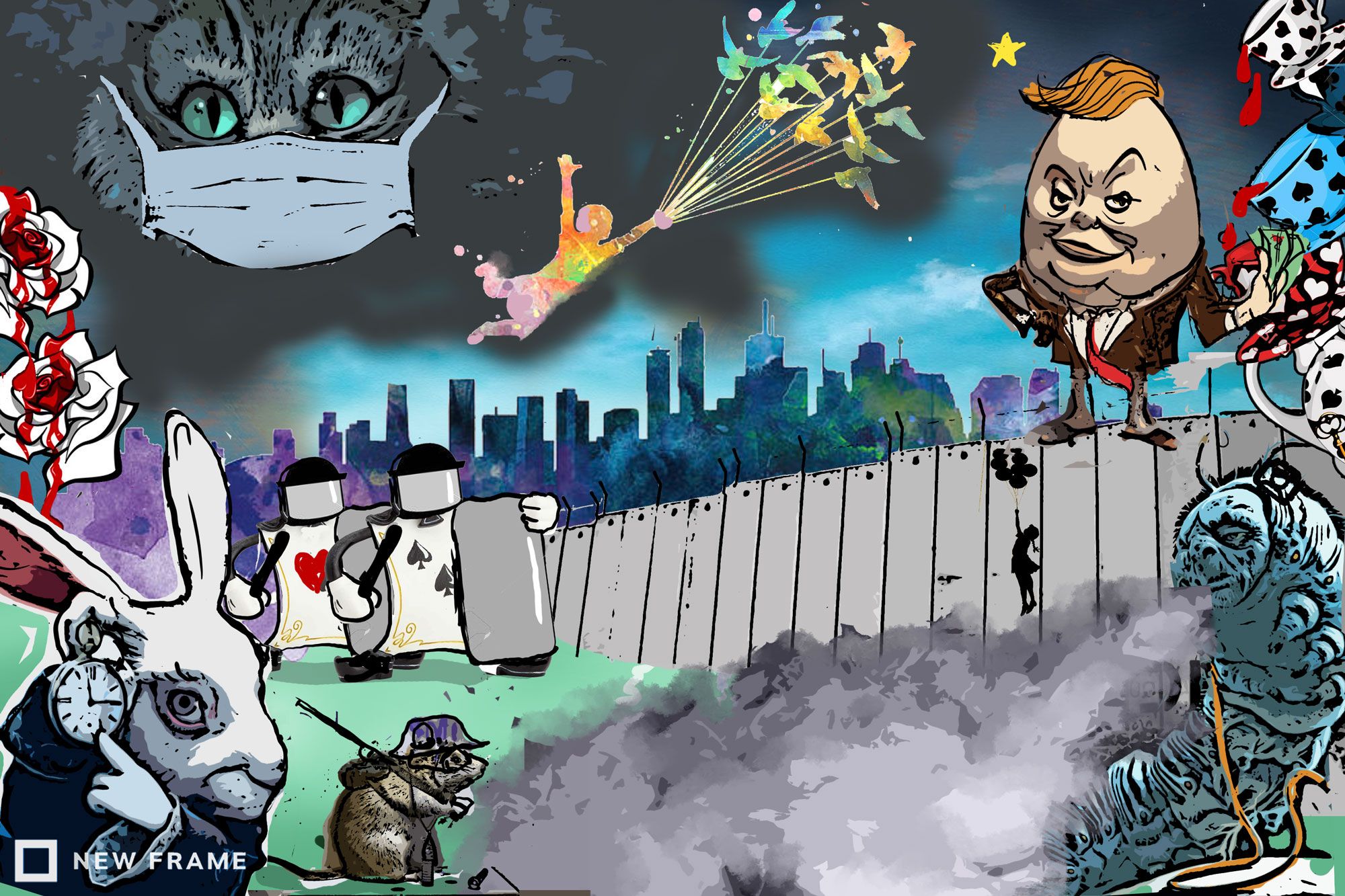Text Messages | Topsy-turvy times
In days like these, we all need to stay strong like Alice in Wonderland to re-emerge from the rabbit hole, to get out on the other side. Reading ‘happy’ books can help.
Author:
19 March 2020

What sort of texts do readers reach for at times of acute anguish? What would be apt reading in the time of coronavirus?
It’s an understandable reflex to suggest tomes of gloom and doom, apocalyptic tales of obliteration. Classics such as A Journal of the Plague Year, Daniel Defoe’s 1722 novel about the Great Plague that struck London in 1665, come easily to mind. But perhaps the opposite should happen, and one should seek out “happy” books.
On 29 February this year, a conversation along similar lines unfolded in the Book Clinic feature of The Guardian newspaper. “I’m tired of sad and depressing themes, but want something that’s not a romcom in book form. Are there any happy novels that are also literary?” wrote Anonymous, 56, of New York City.
Related article:
The clinician that week was Jojo Moyes, the best-selling novelist. She replied: “I’ve just judged two literary prizes and reading for both numbed my brain with bleakness. Like the misconception that comedic acting is somehow easier than Ibsen, so has ‘happy’ literature somehow become equated with lightweight.”
She then listed five books, among them Jane Austen’s Pride and Prejudice and Gabriel García Márquez’s Love in the Time of Cholera, of which she said, “Funny, sad, sly and pragmatic. This is a love story that never goes quite where you think it will and ends with two elderly people being simultaneously in love and quite cross with each other. Blissful.”
García Márquez lived through a cholera outbreak in Cartagena, the Colombian coastal city where he began his public writing career as a journalist on a local paper. Early each morning, he would make his way through the marketplace near the seaboard on his way home after a long preceding day and night chasing stories, writing them and preparing them for publication. The novel that years later grew from those experiences is one of the greatest and also one of the most wildly, crazily entertaining. It is perfect “happy” reading for a perfectly unhappy time.
What is life?
The other books that quickly suggest themselves as good reading for our times are the Lewis Carroll duo Alice in Wonderland and Through the Looking Glass. The world has always been topsy-turvy; the coronavirus world is just more so. Both are a lot like Alice’s worlds.
To begin, all have weird deluded characters, like Humpty Dumpty, who think they are more powerful and knowledgeable than they are. The conversation in Through the Looking Glass between Humpty Dumpty and Alice could be between any democratically elected leader turned autocrat and a surprised electorate. (One is certain to think instantly of at least a handful.)
“I don’t know what you mean by ‘glory’,” Alice said.
Humpty Dumpty smiled contemptuously. “Of course you don’t – till I tell you. I meant ‘there’s a nice knock-down argument for you!’”
“But ‘glory’ doesn’t mean ‘a nice knock-down argument’,” Alice objected.
“When I use a word,” Humpty Dumpty said in rather a scornful tone, “it means just what I choose it to mean – neither more nor less.”
“The question is,” said Alice, “whether you can make words mean so many different things.”
“The question is,” said Humpty Dumpty, “which is to be master – that’s all.”
But that is perhaps to cast Alice and her adventures in too serious a light. In days like these, we all need to stay strong like Alice to re-emerge from the rabbit hole, to get out on the other side.
The last stanzas of Which Do You Think It Was?, the poem at the end of Through the Looking Glass, is a word-portrait of what that shore might look like.
In a Wonderland they lie,
Dreaming as the days go by,
Dreaming as the summers die:
Ever drifting down the stream –
Lingering in the golden gleam –
Life, what is it but a dream?

